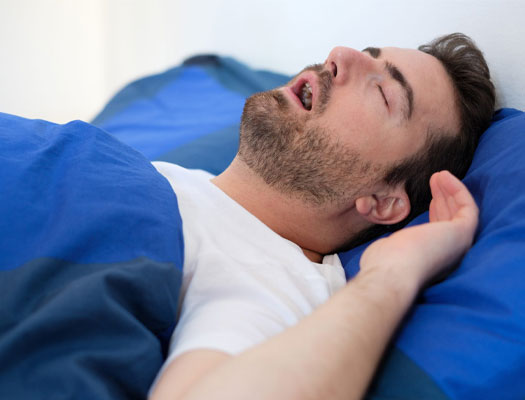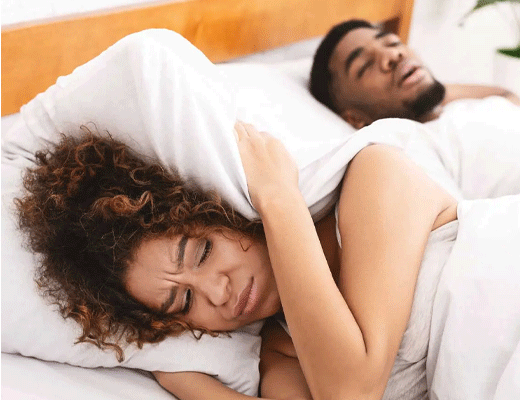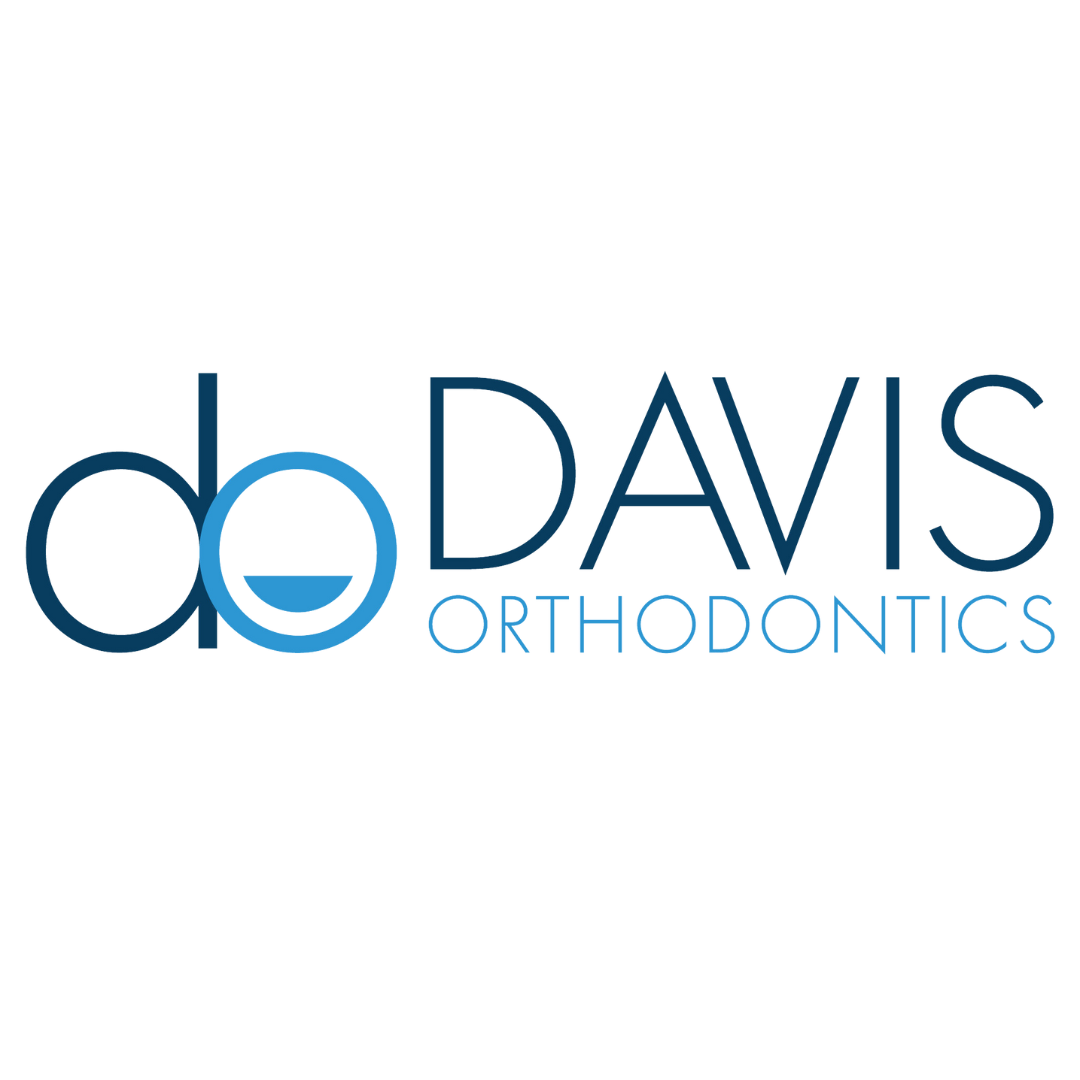Sleep Apnea & Snoring

Dr. Davis can fabricate an oral appliance to help allow air to pass more naturally when sleeping so you can get your rest and feel vibrant the next day.
All about Sleep Apnea & Snoring
You know it instinctively: A good night’s sleep is essential for good health. It makes you feel rested and ready to take on the world. Yet many people don’t get the sleep they need. Sometimes this is related to sleep-related breathing disorders (SRBD) — their own, or those experienced by their sleeping partners.
SRBD
SRBD is characterized by recurrent episodes of reduced or interrupted respiratory airflow. This is caused by soft tissues near the back of the throat collapsing during sleep so that they partially close off the windpipe. These tissues — the tongue, for example — can vibrate as air passes by, causing snoring. Snoring is often worsened sleeping on one’s back because this encourages the lower jaw to slip back, which in turn pushes the tongue in front of the airway.
Sleep-Related Breathing Disorders and Overall Health
Medical professionals classify sleep-related breathing disorders (SRBD) by recurrent episodes of decreased or discontinued airflow. Sleep-related breathing disorders are caused by soft tissues near the back of the throat blocking the windpipe throughout the night.
Consequently, sleep-related breathing disorders elevate carbon dioxide levels in the blood during sleep. High levels of carbon dioxide in the blood harm the organs. Patients suffering from insufficient breathing often have other chronic health problems, such as:
- Lung conditions
- Nervous system disorders
- Cardiovascular problems
Men, the elderly, and people suffering from excess weight are more likely to develop sleep-related breathing disorders.
The Impact of Snoring
Snoring occurs when air causes saggy tissue near the back of the throat to vibrate. Occasional light snoring is ordinary for most people and benign. When snoring occurs more than three nights per week, doctors categorize this phenomenon as a sleep-related breathing disorder.

The most significant impact of chronic snoring may be on a partner, roommate, or family member. Loud, chronic snoring may disrupt the sleeping patterns of those around.
How An Orthodontist Can Help
By now you’re probably wondering: What does my orthodontist have to do with all this? Here’s the connection: Snoring or sleep apnea can sometimes be treated with an oral appliance available here at the dental office that’s designed to hold the lower jaw forward during sleep. This repositioning of the jaw moves the tongue away from the back of the throat, reducing the potential for obstruction. This treatment is backed by a great deal of scientific evidence; it’s a good remedy to try before moving on to more complicated breathing devices or surgery to remove excess tissues in the throat.
Dr. Davis can fabricate, fit, adjust, monitor, and treat complications associated with Oral Appliance Therapy used in managing SRBD. So if you or a loved one is experiencing any combination of the signs and symptoms mentioned above, please come in and talk to Davis Orthodontics about Oral Appliance Therapy (OAT). Even if something beyond OAT is called for in your particular case, we will make sure you get the help you need.






